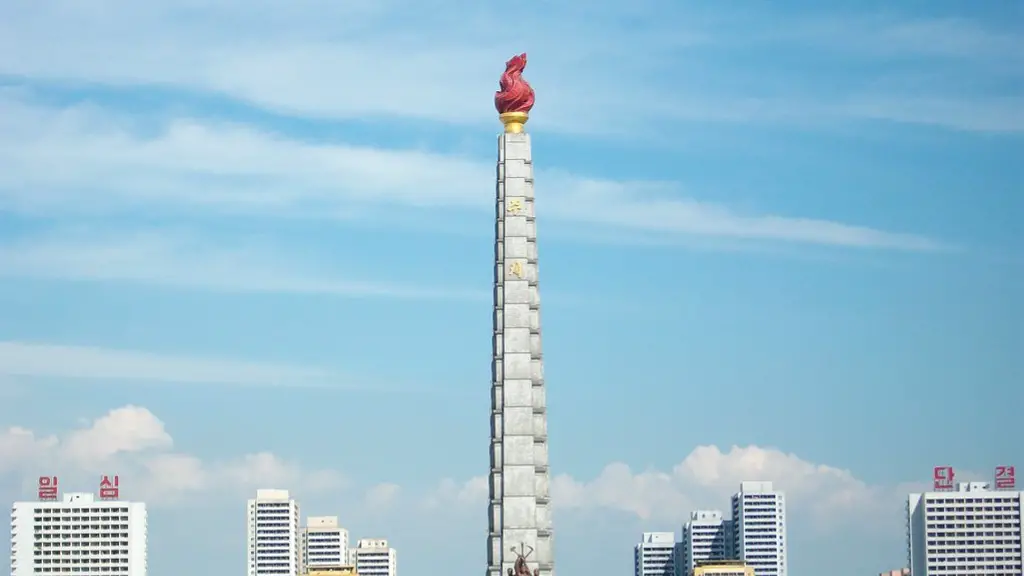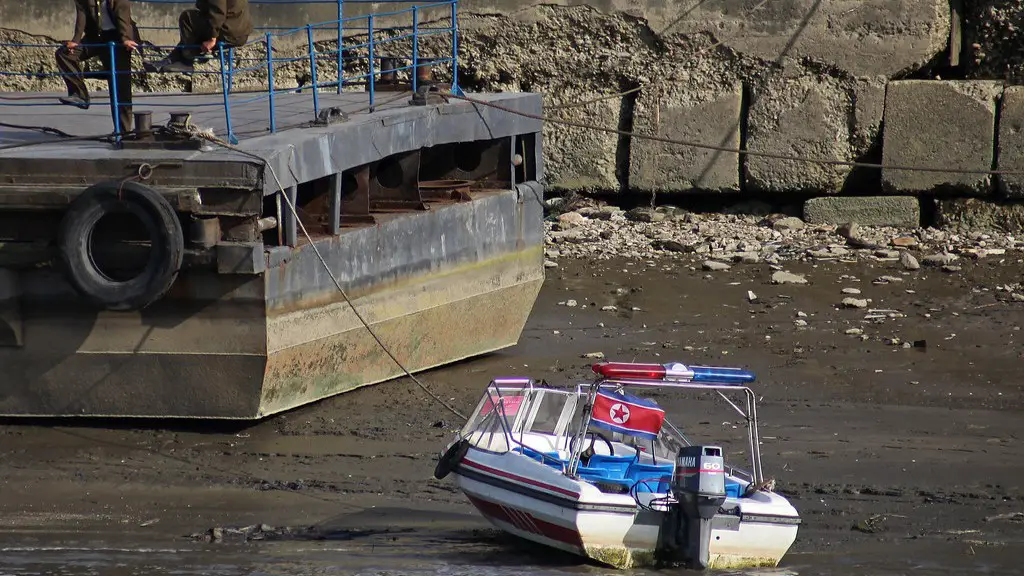North Korea’s Growing Network of Nuclear Weapons
The world is on the brink of a nuclear disaster, as North Korea continues to develop its nuclear weapons program. This tiny nation is now estimated to possess at least 13 weapons of mass destruction, stored in underground facilities and directed by an untested leader. North Korea is willing to use these weapons, as demonstrated by recent missile tests and belligerent rhetoric. The threat of a North Korea nuclear attack is becoming increasingly real and tangible.
If North Korea were to launch a nuclear strike, the casualties would undoubtedly be catastrophic. In addition to the loss of life and property, the economic consequences would be disastrous. Nuclear weapons are designed to be extremely destructive, and the effects could reverberate through international markets and lead to massive economic disruption. It is likely that regional stability would be undermined, leading to further unrest and violence.
Given the gravity of this situation, the international community must act now to prevent a nuclear arms race in North Korea. It is crucial that the United Nations maintain strict sanctions against the nation, and that other countries deepen diplomatic ties. It is also important for the United States to continue holding a hard-line stance on North Korea, and to support talks of denuclearization.
Unfortunately, the North Korean government has remained obstinate in their weapons program. Despite sanctions and international pressure, the nation is continuing down a path of nuclear proliferation. This has prompted much speculation about the nature of North Korea’s ultimate goals. Do they seek to maintain power within the region? To gain international recognition? Or is their ultimate aim more dire and destructive?
Experts agree, however, that the most likely outcome of this crisis is a regional conflict. North Korea has a long history of provocation and aggression, and it is likely that they would respond violently to any perceived threats. This could easily spiral out of control, leading to destruction and loss of life on an unimaginable scale.
Protection For US Citizens
If a North Korean attack were to occur, the United States would be forced to respond. The US has a history of responding to such threats, and the nation’s military is well-equipped to counter any sort of aggression. The US also has a strong nuclear arsenal, and would likely be able to fend off a potential attack if necessary.
Still, the threat of a North Korean attack is a serious one. US citizens should take precautions and plan for the worst-case scenario. This includes stocking up on emergency supplies, such as food, water, and first aid materials. It is also a good idea to familiarize oneself with the location of nuclear shelters and fallout zones in their area. In addition, officials advise that US citizens should stay informed of the latest developments in the region by staying tuned to official news sources.
Impact on Neighboring Countries
If war were to break out in the region, neighboring countries would be particularly vulnerable. South Korea, in particular, would suffer dearly, as it is in such close proximity to North Korea. Moreover, diplomatic ties and economic relations between North Korea and South Korea have been fractured for decades. A large-scale conflict as a result of a North Korean nuclear strike, would prove to be devastating for the South Korean people.
Japan would also be affected, as North Korea has a history of using the country as a target for its missile tests. Japan is a key US ally in the region, and the possibility of a North Korean nuclear attack targeting the country cannot be taken lightly. In addition, there would be regional destabilization that could lead to further actions of aggression in the rest of the Pacific Rim.
Strategic Global Response
Given the increasing threat of nuclear conflict in the region, it is essential for the international community to come together and coordinate a strategic response. The United Nations must take a firm stance in order to prevent further hostility and aggression. The participation of the US is particularly significant, given its role as the leader of the coalition. It is essential that the US and other countries work together to force North Korea to abandon its nuclear weapons program.
The global response must also involve China. China is North Korea’s closest ally, and plays a critical role in maintaining the status quo in the region. China has recently taken a more active role in condemning North Korea’s weapons program and has put greater pressure on the nation to abandon its nuclear ambitions.
The Consequences Of War
In the event of a nuclear attack, the consequences for both North Korea and the international community would be devastating. North Korea would undoubtedly face severe repercussions for its actions, including widespread economic sanctions and international condemnation. There is also the possibility of a full-scale invasion by US forces, which would lead to further destruction and loss of life in the region.
While the threat of a North Korea nuclear attack is a stark reality, it is essential that all parties involved take action now to prevent war. If nations can cooperate to dismantle the nation’s weapons program, then the possibility of a nuclear conflict can be erased. The international community must remain vigilant, and must make it their priority to ensure that the possibility of a North Korea nuclear strike is never realized.
Readiness Of US Forces
In order for the US to be prepared for a potential North Korean nuclear attack, its military must be at full readiness. The US government has recently taken steps to enhance the nation’s military presence in the region. This includes deploying additional troops and equipment to South Korea, as well as stationing more naval vessels in the Pacific.
The US has also invested in new defensive systems, such as the THAAD system. This system is designed to intercept and destroy ballistic missiles, should North Korea decide to launch an attack on US soil. The US military is also working on new technologies to detect and track North Korean missiles, and is developing strategies to counter them.
International Community’s Role
The international community has an essential part to play in preventing a North Korea nuclear strike. The United Nations and other world leaders must be willing to take strong stances in order to ensure that the nation abandons its weapons program. This could involve economic sanctions, or even military intervention. The involvement of China, in particular, is essential, and the nation must be willing to cooperate in order to ensure the safety of the region.
The UN must also remain vigilant, and must be willing to take action should North Korea violate any international rules or laws. The UN must also be steadfast in its commitment to peace and security in the region, and must work together with other countries to prevent a nuclear disaster.
Implications of a North Korean Nuclear Attack
The consequences of a North Korean nuclear attack would be far-reaching and devastating. Not only would the nation be subject to severe international sanctions, but the global economy could also be negatively impacted. In addition, the potential for regional conflict would be greatly increased, and the possibility of further violence would loom large.
Furthermore, the psychological effects of a nuclear attack could be felt long after the incident. For example, the US citizens who experienced the aftermath of the bombings of Hiroshima and Nagasaki still carry the memories of the tragedy with them decades later. In the event of a North Korean nuclear attack, similar psychological trauma could reverberate for generations to come.
Preventing Nuclear Conflict
The only way to prevent a North Korean nuclear attack is for the international community to take decisive action. This requires strong leadership from the United Nations, as well as cooperation from other countries, including China and the US. The UN must also be willing to enforce international laws and sanctions, and to take all necessary steps to ensure that the region remains peaceful.
In addition, the US must remain firm in its stance on denuclearization, and must work to ensure the security of its citizens and its allies. This could involve diplomatic strategies, or military preparedness. Ultimately, it is clear that the only way to ensure the safety of the region is through a unified global response and a commitment to peace and security.


